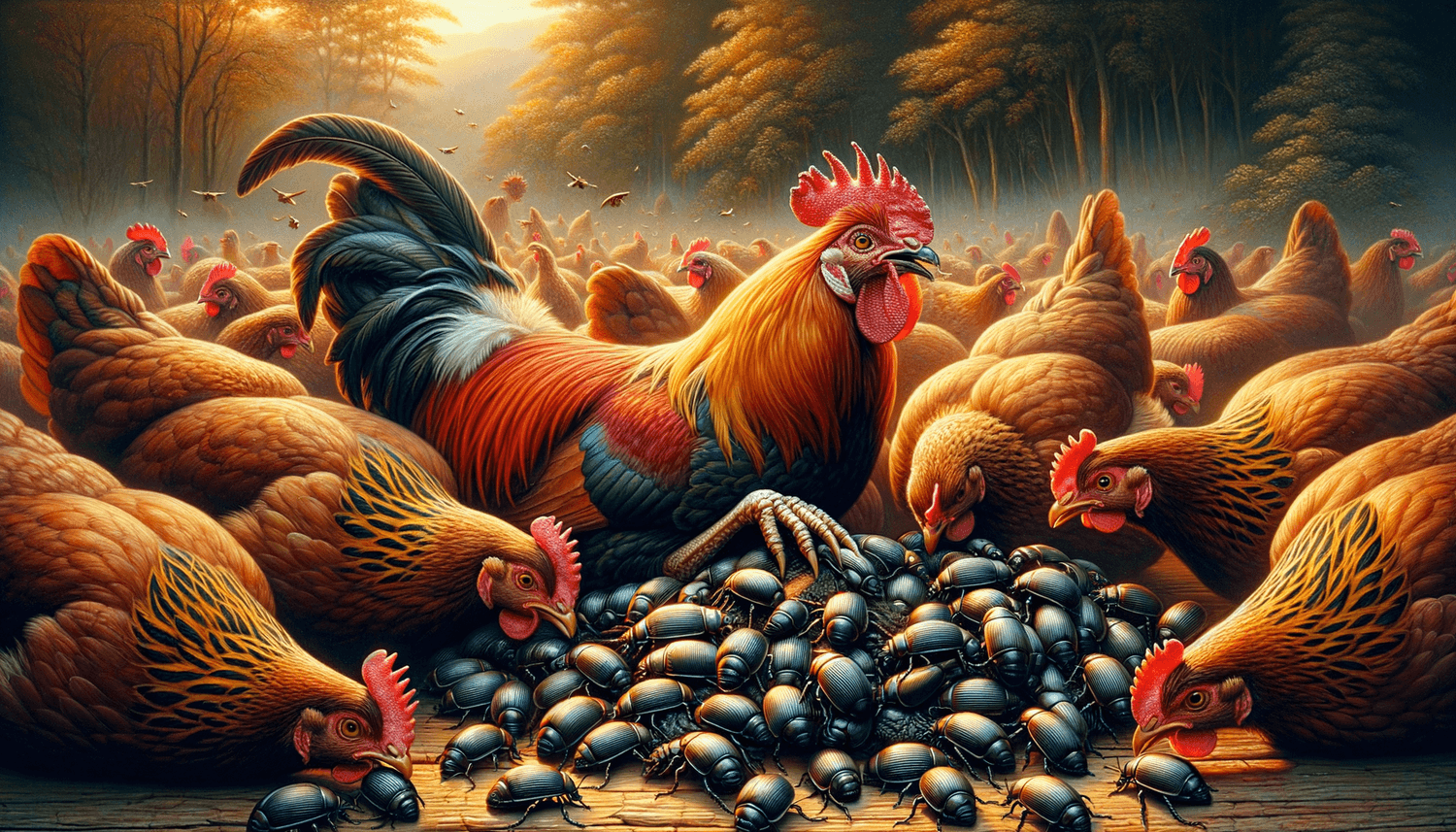Yes, chickens can eat Darkling Beetles. These insects are a natural part of chickens’ diets in the wild and provide a source of protein that is essential for their growth and egg production.
Quick Summary
- Chickens can eat Darkling Beetles.
- Darkling Beetles provide a high-protein snack that is good for chickens’ growth.
- There are minimal risks associated with feeding these insects to chickens.
- Feed in moderation alongside a balanced diet.
Overview of Darkling Beetles
Darkling beetles are insects that belong to the family Tenebrionidae. They are widely recognized for their larval form, known as mealworms, which are often used as feed for various pets and livestock. Full-grown darkling beetles continue to be a rich source of nutrients, particularly protein and fat, essential for maintaining healthy poultry.
Benefits and Risks of Darkling Beetles for Chickens
Darkling beetles provide numerous benefits for chickens, including serving as a natural source of protein, which is crucial for muscle development and feather growth. They can also stimulate natural foraging behavior and provide entertainment. There are few risks involved, mainly consisting of overconsumption leading to an imbalance in the diet if not offered in moderation.
Feeding Guidelines
To properly feed Darkling Beetles to chickens, they should be provided as a supplement to the chickens’ regular diet. They should not exceed more than 10% of the chickens’ daily intake, ensuring that the birds receive a balanced diet encompassing all necessary nutrients. It’s best to offer darkling beetles as a treat rather than the mainstay of their diet.
Alternatives
If Darkling Beetles are not available, other good sources of protein for chickens include mealworms, crickets, and a variety of seeds and grains that are formulated specifically for poultry nutrition.
Expert Opinions
Poultry nutritionists and veterinarians often endorse adding a variety of insects into chickens’ diets as a wholesome source of protein. Numerous studies have underscored the importance of protein for poultry health, particularly for laying hens where sufficient protein intake is crucial for sustained egg production.
Frequently Asked Questions
Here are some common questions answered to help you understand the topic of feeding Darkling Beetles to chickens in detail.
Are Darkling Beetles safe for all chickens?
Yes, Darkling Beetles are safe for all chickens, both young and mature. However, portion size should be appropriate for the age and size of the birds.
How often can I feed my chickens Darkling Beetles?
Darkling Beetles can be offered to chickens in small quantities a few times a week as part of a balanced diet.
Do Darkling Beetles offer any nutritional benefits to chickens aside from protein?
Aside from protein, Darkling Beetles provide essential fatty acids, nutrients, and can stimulate chickens’ natural foraging instincts.

















